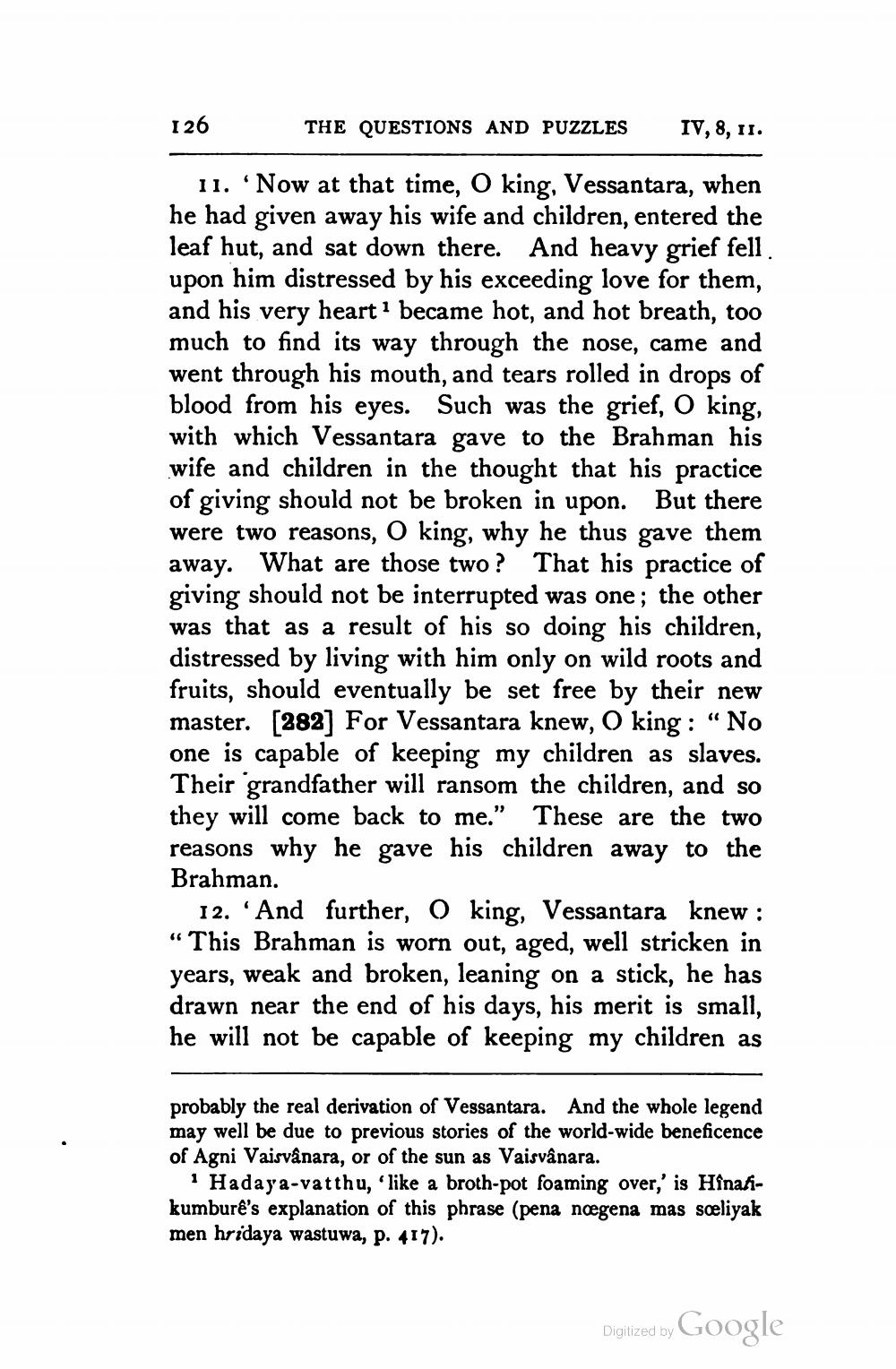________________
I 26
THE QUESTIONS AND PUZZLES
IV, 8, 11.
11. Now at that time, O king, Vessantara, when he had given away his wife and children, entered the leaf hut, and sat down there. And heavy grief fell upon him distressed by his exceeding love for them, and his very heart' became hot, and hot breath, too much to find its way through the nose, came and went through his mouth, and tears rolled in drops of blood from his eyes. Such was the grief, O king, with which Vessantara gave to the Brahman his wife and children in the thought that his practice of giving should not be broken in upon. But there were two reasons, O king, why he thus gave them away. What are those two ? That his practice of giving should not be interrupted was one; the other was that as a result of his so doing his children, distressed by living with him only on wild roots and fruits, should eventually be set free by their new master. [282] For Vessantara knew, O king : “No one is capable of keeping my children as slaves. Their grandfather will ransom the children, and so they will come back to me." These are the two reasons why he gave his children away to the Brahman.
12. 'And further, () king, Vessantara knew : "This Brahman is worn out, aged, well stricken in years, weak and broken, leaning on a stick, he has drawn near the end of his days, his merit is small, he will not be capable of keeping my children as
probably the real derivation of Vessantara. And the whole legend may well be due to previous stories of the world-wide beneficence of Agni Vaisvanara, or of the sun as Vaisvânara.
1 Hadaya-vatthu, 'like a broth-pot foaming over,' is Hînatikumbure's explanation of this phrase (pena nægena mas sceliyak men hridaya wastuwa, p. 417).
Digitized by Google
Digitized by G




